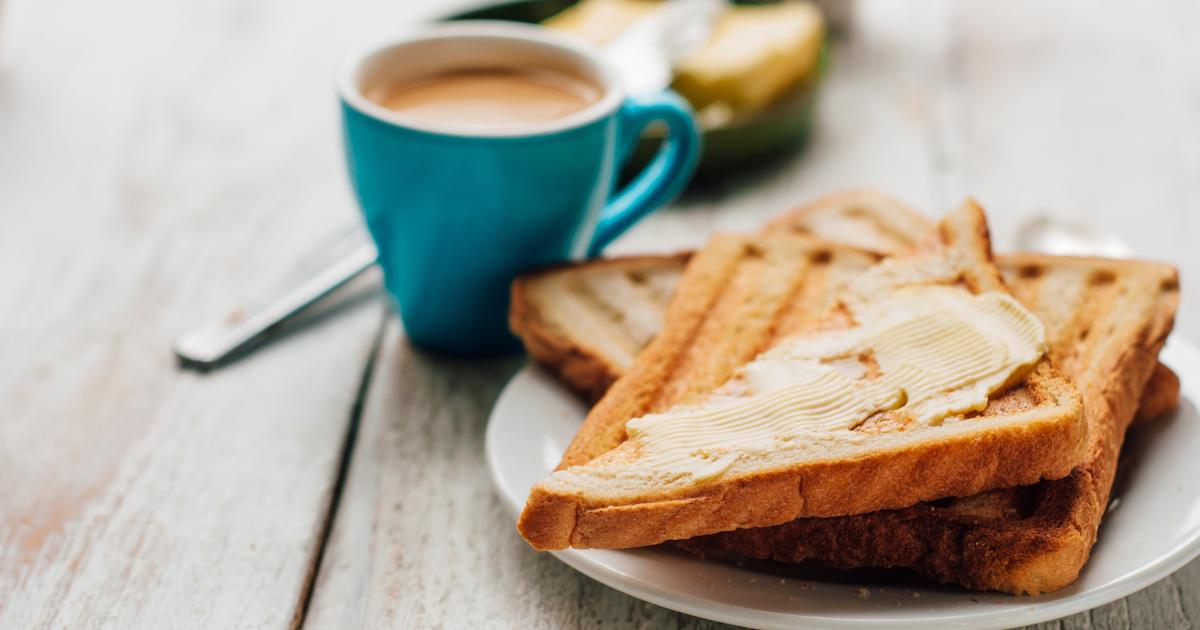It is the ultimate gourmet support for spreading a nice layer of butter and jam.
Sliced bread, rusk or even brioche are for some a must for breakfast or snack.
Young and old alike love their taste and appreciate their practicality.
Only problem: most of these foods are called “ultra-processed”, that is to say designed by food manufacturers, and therefore of little nutritional value, containing additives and often too sweet.
But between these three quick and delicious breakfast classics, is there one to favor more than another?
Which is the best of the worst?
To discover
Podcast >
Arnold Schwarzenegger: sex, lies and big muscles
Download the Le Figaro Cuisine app for tasty and authentic recipes
Also read: Is drinking orange juice for breakfast good for your health?
Draw
At the risk of disappointing, in reality, none of these three products is really to be preferred.
“The ideal remains to consume organic wholemeal sourdough bread, much richer in fiber and nutrients,” says Anthony Fardet, doctor in human nutrition, researcher in preventive nutrition and author of the book Stop
Ultra-Processed Foods!
Let's eat real
(1).
Artisanal wholemeal bread (composed of water, flour, salt and sourdough) requires greater chewing, which contributes to the feeling of satiety and regulates our food consumption.
This is not the case for sandwich bread which is soft and rusk which is crumbly.
Result ?
We chew them less and eat more.
If we look a little closer at their composition, the story doesn't get any prettier.
“Most sandwich breads, rusks or brioches contain ingredients processed or created by the agro-industry, such as additives, and most also contain added sugars and fats of more or less good quality,” explains Sophie Janvier, dietitian nutritionist in Paris, author of
The Gentle Method for Eating Better
(2).
For several years, research has proven that the consumption of these ultra-processed foods is associated with risks of overweight, obesity, diabetes, and even cancer.
Without forgetting that “these foods generally have a high glycemic index (
they quickly increase blood sugar levels, Editor’s note
),” continues Anthony Fardet.
Clearly, consuming such a product for breakfast will encourage cravings and sweet cravings throughout the day.
“Without forgetting their low nutritional density: they provide little fiber, vitamins and micronutrients to our body.”
A short list of ingredients
In summary, ideally, white bread, brioche and rusks have no place on the breakfast table.
It is best to consume them sparingly, experts agree.
When we indulge in this pleasure, the main thing is to choose them correctly by reading their label.
“We put aside the long lists of ingredients,” says Anthony Fardet first.
If the product contains 6 or more ingredients, it is most likely that it is ultra-processed.”
Also no more products containing additives with complicated names (such as emulsifiers called mono- and diglycerides of fatty acids and carrageenans), and those containing an ingredient that would not be found in our kitchens, such as glucose syrup or fructose.
Read alsoBreakfast cereals and snack biscuits: the worst and the best, according to “60 million consumers”
To avoid a food with a high glycemic index, “the best is to choose products without added sugars, not too salty (less than 1 gram of salt per 100 grams of food), and if possible rich in fiber (more than 3 grams for 6 grams of food) to promote intestinal health,” concludes Sophie Janvier.
(1)
Stop ultra-processed foods!
Let's eat real,
by Anthony Fardet, Thierry Souccar editions, 256 pages, €19.90.
(2)
The Gentle Method for Eating Better
, by Sophie Janvier, Leduc editions, 272 pages, €18.
Sophie Janvier is also the creator of the BOOST online program on anti-inflammatory diet.

